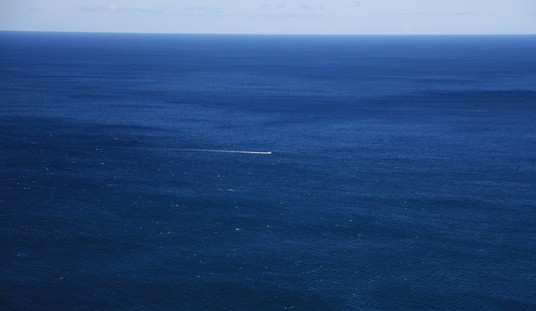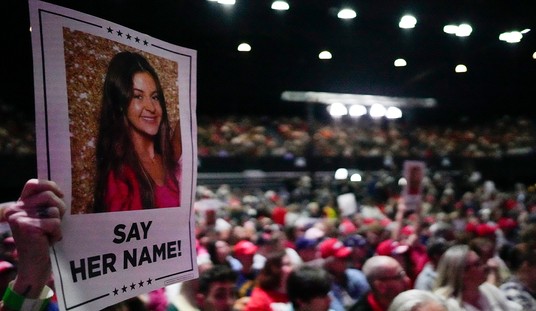In his book Disinformation, Lt. Gen. Ion Mihai Pacepa details Khrushchev’s plan to convert South Americans to communism through “the judicious manipulation of religion”:
“In 1968, the KGB was able to manueuver a group of leftist South American bishops into holding a conference in Medellin, Colombia. …The official task of the conference was to help eliminate poverty in Latin America. Its undeclared goal was to legitimize a KGB-created religious movement dubbed ‘liberation theology,’ the secret task of which was to incite Latin America’s poor to rebel against the ‘institutionalized violence of poverty’ generated by the United States. …The Medellin Conference did indeed endorse liberation theology, and the delegates recommended it to the World Council of Churches for official approval.” Having already “come under the control of Soviet foreign intelligence,” the WCC “endorsed liberation theology and made it part of the WCC agenda.”
Liberation Theology, it would seem, was to be the perfect marriage of the intellectual and the religious classes. According to Reverend Robert A. Sirico, “The intellectual power of the liberation theology movement derived from its attempt to justify a traditionally atheistic Marxist movement within a framework that would appeal to religiously minded Latin Americans.” The Acton Institute founder details,
“The theology was not complicated. It combined Marxian economic doctrine with a misrendering and politicization of Christ’s moral injunctions to help the poor. In this respect, it was easily refuted through simple economic logic. The ‘structures of oppression’ that so outraged the liberation theologians were not capitalism but traditional mercantilist policies in which a government-connected elite used the state to inhibit free competition for land and capital and sought trade policies that would benefit large landholders at the expense of craftsmen and small farmers. The ‘liberation’ that these faith-based Marxist ideologues sought could only be found in the overthrow of mercantilist economics and the invigoration of a business economy that would spread economic opportunity and prosperity.
Uprooting the theological error was more complicated. Formal political and theological criticism came from the Catholic Church under Pope John Paul II. Having lived under the totalitarian socialism of both Nazism and communism, he saw the grave dangers that seemingly naïve misunderstandings of economics, combined with religious zeal, could pose for societies. He used his personal influence among Latin American bishops to weigh against the teaching of the liberation theologians, and he directly confronted leaders of Marxist political and ecclesiastical movements for their distortions of traditional Christian teaching. At issue, he said, was not only the danger that liberation theology would lend moral support to would-be totalitarians; he also rejected the attempt to thoroughly politicize Christ’s message on behalf of the poor.”
When Pope Benedict XVI, then Cardinal Joseph Ratzinger, worked as the head of the Vatican’s Congregation for the Doctrine of the Faith from 1981-2005, he enforced Pope John Paul II’s anti-Liberation Theology policy by speaking out against the ideology and sanctioning priests who supported the Marxist ideal. However, Pope Francis’s affirmed (ironically first appointed by Pope Benedict) prefect of the Congregation for the Doctrine of Faith, Archbishop Gerhard Muller, is not as wary of Liberation Theology as his predecessor. Then again, perhaps the new Pope isn’t, either.

Pope Francis and Archbishop Gerhard Muller, prefect of the Congregation for the Doctrine of the Faith
Both are apparent fans of Father Gustavo Gutierrez, the Peruvian founder of Liberation Theology. In fact, Muller, who is described as “an academic with a university background” has travelled to Peru to study under Gutierrez yearly since 1998. In 2008, the intellectual Archbishop
“…accepted an honorary doctorate from the Pontifical Catholic University of Peru, widely viewed as a stronghold of the progressive wing of the Peruvian church. ‘The theology of Gustavo Gutiérrez, independently of how you look at it, is orthodox because it is orthopractic,’ Müller said. ‘It teaches us the correct way of acting in a Christian fashion since it comes from true faith.'”
This past week, PJ Media’s Roger Kimball commented on the Guardian‘s declaration of Pope Francis as “the obvious new hero of the left.” This secular observation shouldn’t be new to Catholics, at least not readers of the Vatican press. In September, Catholic News reported,
“…within a single week in early September 2013, the Vatican newspaper, L’Osservatore Romano, published an interview with Father Gutierrez, an article by the theologian himself, and two articles praising his work — one of them by the prefect of the Congregation for the Doctrine of the Faith, Archbishop Gerhard L. Muller.”
Most intriguingly, they also remarked,
“When Pope Benedict named Archbishop Muller to head the doctrinal office, in July 2012, he surely knew that the man he was making the highest custodian of church teaching after the pope himself was an admirer and co-author of none other than Father Gutierrez.”
Whether or not the current KGB State is still playing a role in Liberation Theology is difficult to define. Russian leader Vladimir Putin has, however, relied strongly on Pope Francis’s “vehement opposition” to a military strike on Syria in his own bidding with Secretary of State John Kerry and the West. Syrian Christians also carry the potential of being a valuable bargaining chip to Putin. According to a NewsMax report,
“That Putin sees Christians as a key factor in maintaining regional stability is not lost on the local people. Last month, around 50,000 Syrian Christians applied for Russian citizenship and the Kremlin is seriously considering their request. The letter of application had fulsome praise for Putin’s Russia, which they described as a ‘powerful factor for global peace and stability.” By contrast, they were critical of the West’s support for “terrorists,” whose aim, they wrote, is “to eliminate our presence in our homeland.'”
Despite the international jump on the story, readers should take notice of the highly politicized language of the letter and the fact that it was released to the public by the Russian Foreign Ministry which published an English translation of the Arabic letter on its website in October.
While Putin and the Pope are thawing relations the actual dynamics of the relationship have yet to be pegged. Given the history of Russian-influenced Liberation Theology and the Pope’s own relationship to that contentious corner of the Catholic faith, it would appear that the line between secular intellectualism and the Church is more than blurred; it is disappearing altogether, much to the benefit of Khrushchev’s political descendants.











Join the conversation as a VIP Member